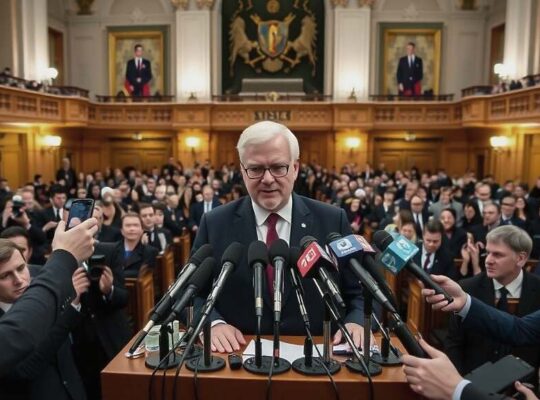The German public sector union, Verdi, is escalating demands in upcoming wage negotiations with state governments, signaling a potentially protracted and politically charged dispute concerning the attractiveness and sustainability of public service employment. Verdi is seeking a minimum monthly salary increase of €300, or a full seven percent, for its members across the Länder (states), an ambition aimed at bolstering the lowest pay brackets and addressing concerns about talent retention.
Alongside the wage demands, the union is pushing for a €200 monthly increase in compensation for newly recruited staff, coupled with a guarantee of permanent employment contracts following successful completion of training. Furthermore, a significant 20 percent increase for all shift allowances is on the table, reflecting recognition of the demanding and often irregular working hours prevalent in crucial public sector roles. The proposed duration of the new collective agreement (TV-L) is twelve months.
Verdi’s chairman, Frank Werneke, emphasized that employees expect a “clear signal” from employers acknowledging their contributions and improving compensation. He warned that the public sector must remain compelling to attract and keep highly skilled workers to confront impending challenges effectively. Werneke directly linked the state governments’ expanded financial capacity, fueled by increased tax revenues, to an obligation to adequately reward public sector employees. He argued that the sector now faces direct competition for qualified personnel, underscoring the urgency of competitive salaries and favorable working conditions.
Negotiations with the Tarifgemeinschaft deutscher Länder (TdL), representing state governments for approximately 1.2 million employees (excluding Hessen), are scheduled to commence on December 3rd in Berlin. Verdi is also advocating for the “time and effect-equivalent” transfer of the negotiated terms to benefit around 1.3 million civil servants and pension recipients, broadening the potential impact of the collective bargaining process. This call indicates a broader objective: to not only improve the situation for unionized employees but also to address systemic undervaluation within the entire public sector workforce, a move likely to face considerable resistance from fiscally conservative state governments. The outcome of these negotiations will therefore have significant implications for the future of public service employment and the broader political landscape in Germany.












